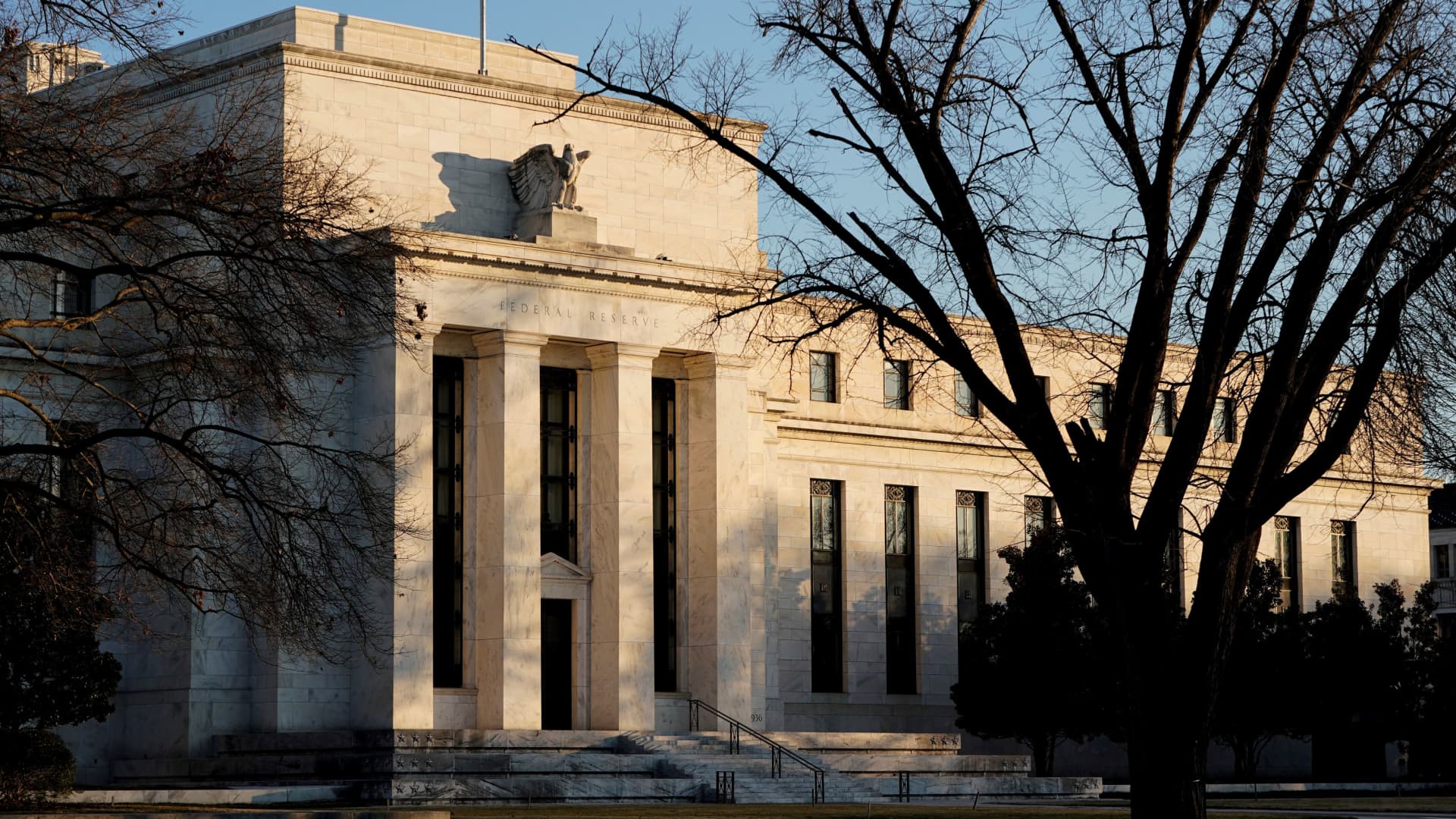
The Federal Reserve building is seen before the Federal Reserve board is expected to signal plans to raise interest rates in March as it focuses on fighting inflation in Washington, January 26, 2022.
Joshua Roberts | Reuters
If there was any question about where the Federal Reserve stands on the key issue of the day — inflation — two important officials brought even more clarity on Tuesday.
Fed Governor Lael Brainard and San Francisco Fed President Mary Daly both issued comments that showed they both envision higher rates and, in the former’s case, an aggressive drawdown of the assets the central bank is holding on its balance sheet.
Investors didn’t particularly like what they heard, sending major averages considerably lower on the day and the 10-year Treasury yield to a new 2022 high.
“It is of paramount importance to get inflation down,” Brainard said during a Minneapolis Fed webinar. The Federal Open Market Committee, which sets interest rates, “will continue tightening monetary policy methodically through a series of interest rate increases and by starting to reduce the balance sheet at a rapid pace as soon as our May meeting.”
The comments helped knock down a positive opening on Wall Street that ultimately turned into a nearly 1% loss for the Dow Jones Industrial Average. The more aggressive Fed chatter also comes as the 30-year fixed mortgage rate topped 5%, a key threshold which could slow the housing market.
‘We’re not going to let this go forever’
Later in the day, Daly said inflation running at a 40-year high “is as harmful as not having a job.” Speaking to the the Native American Finance Officers Association, she assured the group that the Fed is on the case.
“Most Americans, most people, most businesses, hopefully people in tribal nations, you all have confidence that we’re not going to let this go forever,” Daly said. “But if you don’t have that confidence, let me give it to you.”
She assured those in attendance several times that interest rates are heading higher, though she added that she doesn’t think it will cause a recession.
Raising rates “is what is necessary to ensure that again, [you] go to bed at night, you’re not worrying about whether prices will be higher, considerably higher tomorrow,” Daly added.
The Fed already has enacted its first rate hike of the year, a 0.25 percentage point move in March. Markets expect increases at each of the six remaining meetings this year, possibly totaling 2.5 percentage points.
Two policy ‘doves’
What made the two officials’ comments more striking is that they are considered to be in the camp of Fed “doves” — meaning that they usually favor low rates and less restrictive policies. That they both see a rather urgent need to tighten underscores how seriously the Fed is taking the threat.
Brainard’s voice carries a little extra heft in that she has been nominated to be vice chair of the FOMC, a position that makes her the top lieutenant for Chairman Jerome Powell.
Brainard said she expects the Fed’s $9 trillion balance sheet to “shrink considerably more rapidly” than was the case during the last rundown in 2017-19. In that episode, the Fed allowed $50 billion a month in proceeds from maturing bonds to roll off while reinvesting the rest. Her comments opened the door to what many economists expect to be a monthly roll-off around $80 billion to $100 billion.
Reducing the balance sheet “will contribute to monetary policy tightening over and above the expected increases in the policy rate,” Brainard added.
“Currently, inflation is much too high and is subject to upside risks. The Committee is prepared to take stronger action if indicators of inflation and inflation expectations indicate that such action is warranted,” she added.
Daly echoed the idea that the balance sheet reduction could start in May, adding that the Fed’s commitment to fighting inflation “will mean interest rates go up.”
“But inflation, what people are paying day in and day out is on the minds of everyone, they go to bed at night thinking about it wake up in the morning thinking about rent, transportation, gas prices, food prices, so we as a Federal Reserve are on a path to raise the interest rates,” she said.







